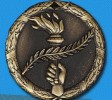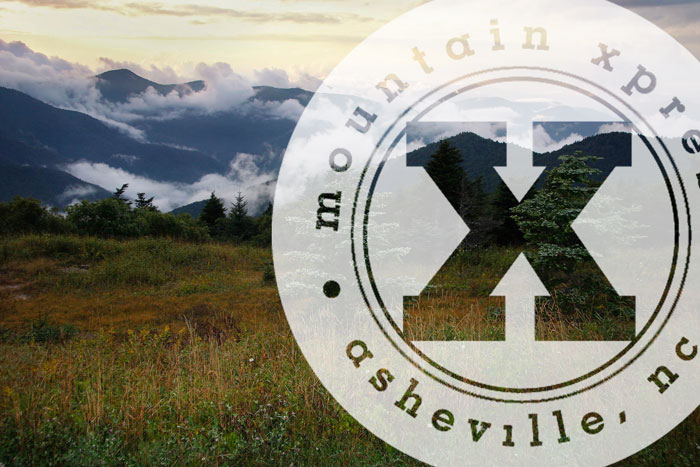Part 1: Burning memories (Part 1) Jon Elliston | 06/18 Tomm Friend was snoozing in his cabin when gunfire and the whoosh of flames pierced the night quiet. “I was awakened by a blast,” Friend remembers 45 years later. That summer, the 15-year-old was attending a camp on the outskirts of Rosman, N.C., a small […]
Tag: cruel summer
Showing 1-14 of 14 results
A message from Be Loved to… everybody
Prejudice is destructive to the fabric of our community. It is appalling that, on the one hand, Mountain Xpress can write such a powerful piece exposing the past prejudice of deeply rooted racism in “Back to Summerlane” [July 28 Xpress] and, in the same issue, promote such blatant prejudice against people who are homeless [in […]
Back to Summerlane
New disclosures about 1963 attack on a WNC children's camp
Former Xpress Managing Editor Jon Elliston wins research grant
Former Xpress Managing Editor Jon Elliston has been awarded a John F. Kennedy Presidential Library Foundation research grant to support his work on a new book, which will tell the full story of the 1963 mob attack on Camp Summerlane in Rosman, N.C. The event was the subject of "Cruel Summer," a four-part series Elliston […]
Into the vault
For journalists, keeping government operations open to scrutiny—and keeping public records public—is a year-round endeavor. But once a year, during Sunshine Week (March 15 to 21), Mountain Xpress joins thousands of publications across the country in making a special push to promote official transparency. A year ago, we marked this nationwide celebration of freedom of […]

WNC community newspapers win state journalism awards
Last night, the North Carolina Press Association announced the winners of its 2008 News, Editorial & Photojournalism Contest. Smoky Mountain News, Mountain Xpress and The Mountaineer all scored awards.
Summerlane series was a jolt
We had quite a jolt reading [Jon Elliston’s] research on Camp Summerlane [“Cruel Summer” series, June 18 and 25, July 2 and 9 Xpress]. Thank you very much for [telling us] about that terrible attack on innocent youths, most of whom were wanting to go to a nonregimented camp. The details and pictures from a […]
Smoked out: Camp Summerlane’s conflicted history (Part 4)

Dave Alexander, a 23-year-old cub reporter for the Asheville Times, went to work early the morning of July 12, 1963. His editors greeted him at 6:30 a.m. with an urgent tip: Something big was going down around Rosman, a town near Brevard.
The remote, sparsely populated place didn’t typically make much news, but this day would prove an exception. The state Highway Patrol had called to alert the paper that a chaotic clash was going on at the newly opened Camp Summerlane, a few miles outside Rosman. “So I jumped into my little Volkswagen, and away I went,” Alexander remembers.
Summerlane was a little more than an hour’s drive from Asheville. About 8 a.m., the reporter reached the outskirts of the camp, where he found law-enforcement officers standing watch around the perimeter. Parking his car, he walked toward them and started to ask, “What’s going on?”
How far we have to go
I have enjoyed reading the first two installments of the “Cruel Summer” series very much. I find it interesting because it’s a local-history story that touches on subjects we often avoid. 1963 is not the distant past, and subjects such as racism and homophobia are still hard subjects to talk about here in the South. […]
Showdown: Camp Summerlane’s trial by fire (Part 3)

Robin Ludwig’s first experiences in the South were something close to magical. The 14-year-old New Yorker started summer vacation at the brand-new Camp Summerlane in the first week of July 1963.
To get there, he’d hopped on a bus that joined a caravan of campers from up north who were headed for Western North Carolina. The first day of the trip, “We drove and drove, and somewhere in Virginia, we pulled over to the side of the road in this incredible grove of giant pine trees,” Ludwig recalls. “There were fireflies everywhere, and we just spread out our sleeping bags and camped out. When we woke up in the morning, we found out we were in the middle of a boysenberry thicket, so we got to eat boysenberries for breakfast. We were all little teenagers from heavy, urban places … and suddenly, we were turned into nature.”
That sense of wonder continued as the caravan reached Camp Summerlane, a 165-acre retreat a few miles outside Rosman, a mountain town southwest of Brevard. “It was someplace else,” he says. “We figured we were in the middle of a bluegrass song.” Along with the rest of the 50-some campers, Ludwig planned to stay for the remainder of the summer.
Storm clouds: Camp Summerlane’s hopeful start turns troubled (Part 2)

In April 1963, seven Camp Summerlane staff members journeyed to Western North Carolina from assorted points around the country. “The dogwoods were just starting to bloom,” one of them remembers, and at first, springtime in the mountains seemed to offer a welcoming setting for the new camp.
Granted, there was much work to be done to prepare the facility—an inactive summer camp about 15 miles southwest of Brevard, near the tiny town of Rosman. Fifty-some children, along with 10 or so additional adult staffers, would be arriving in July.
And while they would need the usual amenities for a summer of hiking, swimming, roasting marshmallows and such, Summerlane was also preparing to implement an unusual social experiment: At this camp, children and adults would be given an equal say in determining most camp rules and activities. There was also a social-service component, as some of the older campers would be doing outreach work with migrant laborers. And even as civil-rights battles flared around the South that summer, children of all races were invited to attend.

Cruel Summer: Digging deeper online
The Xpress investigative series Cruel Summer: The Attack on Camp Summerlane tells a little-known story. See these online resources to learn more.
Burning memories: The short, hard history of Camp Summerlane (Part 1)

The short, hard history of Camp Summerlane
Tomm Friend was snoozing in his cabin when gunfire and the whoosh of flames pierced the night quiet. “I was awakened by a blast,” Friend remembers 45 years later. That summer, the 15-year-old was attending a camp on the outskirts of Rosman, N.C., a small mountain town about a dozen miles southwest of Brevard.
Dressing quickly, Friend bolted into the dark. “I ran down in the direction of the blast, and a woman dropped out of a tree with a machete, right in front of me,” he recalls. Recognizing her as a camp counselor, a relieved Friend blurted out that they knew each other—that he was with the camp, not the mob that was assaulting it.
“She was basically hiding in a tree, protecting children. She had a machete because she didn’t have a gun,” Friend explains; the camp’s few firearms were in other hands. “Then she told me to be careful and climbed back into the tree.”
The camper pressed on, as shouts and gunshots split the hum and gurgle of crickets and streams. Down a hill, in the cove near the camp’s entrance, Friend came upon a surreal scene: A small lake was on fire, the flames wafting across the water.
The attack on Camp Summerlane was under way.
The Camp Summerlane documents
When Jon Elliston’s investigative series, Cruel Summer: The Attack on Camp Summerlane, was published in 2008, Xpress posted 14 key documents from the camp, the N.C. governor’s office and law-enforcement agencies, which are posted below. Our July 2010 followup story, Back to Summerlane, added new records to the collection, which are interspersed below and marked […]




